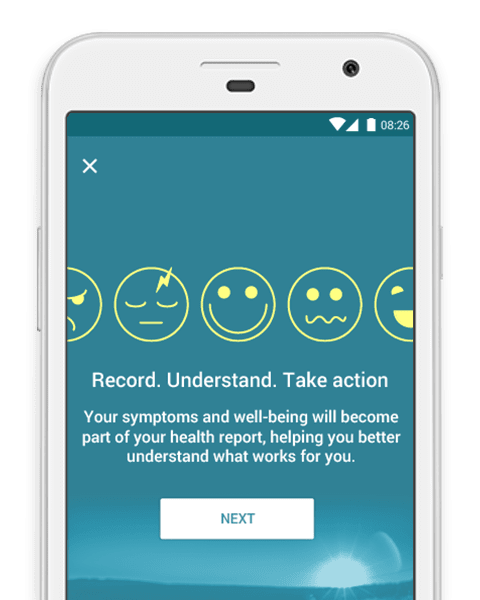We’ve always known or assumed that eating disorders stem from mental health issues. However, what we are oblivious to is which specific mental health disorder could result in an eating disorder and the exact relationship between the two entities.
Before we delve deeper into the details, here are some statistics from a study done by the National Eating Disorders Association [NEDA] that convey the essence of the relationship between eating and mental disorders.
This study was conducted on more than 2,400 participants who have been diagnosed with an eating disorder. It found that:
- 94% of participants had a mood disorder concurrently
- 92% of participants coped with a depressive disorder
- 32 to 39% of people with anorexia nervosa, 36 to 50% of people with bulimia nervosa and 33% of people with binge eating disorder have been diagnosed with major depressive disorder
- 48 to 51% of people with anorexia nervosa, 54 to 81% of people with bulimia nervosa and 55 to 65% of people with binge eating disorder are also diagnosed with an anxiety disorder
From this, you can see that a person living with an eating disorder might be coping with more than one mental health issue simultaneously.
Part 1: You Eat How You Are – Types of Eating Disorders and Their Associated Mental Conditions
1. Anorexia Nervosa
This eating disorder occurs when one starts to restrict his or her diet too excessively; in some cases, one may start exercising (or exercise more) in hopes of shedding weight. Anorexia can also be coupled with body dysmorphia as people may perceive themselves to be larger or overweight when they may actually be severely underweight and malnourished. Symptoms of anorexia may include an intense restriction on diet, unreasonable fear of weight gain, obsession with size and self-image, and drastic weight loss.
There are two types of anorexia nervosa:
a) Restrictive type – This is characterized by unreasonable restrictions placed on the amount and type of food one consumes.
b) Binge-Purge type – Similar to Restrictive, people may place a limit on their diet as well. However, they may also consume a large amount of food (also known as binging) and make up for it by vomiting or using laxatives (also known as purging).
Associated Mental Disorders
Studies have found that many people with anorexia have also been diagnosed with several psychiatric illnesses such as depression, anxiety, obsessive-compulsive disorder, and as mentioned above, body dysmorphia.
a) Depression & Anxiety – Anorexia tends to be especially prevalent among teenagers and young adults. Both age groups are highly sensitive to criticism and might be anxious to fit in. Moreover, they might even deem themselves as worthless or perceive themselves to be of an undesirable body type or size, which could lead to depression.
b) Obsessive-compulsive disorder – People with anorexia tend to be perfectionists and often experience the compulsion to control people and things around them. Furthermore, they are extremely “disciplined” in their food intake as they aim to reach their ideal weight or size.
Other posts you may be interested in on the MyTherapy blog:
2. Bulimia Nervosa
Bulimia is characterized by a cycle of binge eating with no sense of self-control, followed by compensatory behaviors also known as purging where one might engage in self-induced vomiting, use of laxatives, or excessive exercise. Contrary to anorexia, people living with bulimia are often within a healthy weight range, thus making it harder for friends or family members to realize there is an issue.
Should this disorder go unnoticed and untreated, the risk of subsequent serious medical complications, such as gastric rupture, bowel issues, inflammation or rupture of the esophagus, electrolyte imbalances, and cardiac events, increases.
Associated Mental Disorders
Similar to anorexia, people with bulimia also tend to live with depression and anxiety. Additionally, due to the harmful effects brought around by purging, bulimia has been found to be closely linked to self-harm.
a) Depression & Anxiety – These mental disorders may result in self-harm as people often have low self-esteem and perceived low self-worth.
b) Borderline Personality Disorder (BPD) – This is a disorder where an individual will usually have low self-esteem, tend to be impulsive, and potentially engage in self-harm. Due to the nature of BPD, there is a high tendency for these individuals to develop bulimia nervosa.
3. Binge Eating Disorder (BED)
Like its namesake, binge eating refers to the action of repetitive binge eating without any compensatory measures. Similar to bulimia, binge eating encompasses persistent episodes of uncontrolled consumption of large amounts of food in a constrained time frame. However, the main difference between bulimia and binge eating is that there are no compensatory measures followed by these binging episodes. Instead, people are often overwhelmed with feelings of guilt and shame.
Associated Mental Disorders
The mental disorders related to anorexia and bulimia are also linked to BED. Despite the lack of purging in BED, uncontrolled eating is considered as a type of self-harm which implies that BPD also affects BED in the same way it affects bulimia nervosa.
4. Avoidant/Restrictive Food Intake Disorder (ARFID) – aka Selective Eating Disorder (SED)**
While it may seem impossible to forget to eat due to our body’s natural ability to signal hunger, people living with ARFID may occasionally forget to eat. Generally, this disorder is characterized by a lack of interest in food or the inability to consume certain food items; “edible” food could refer to only specific food types or brands of food and sometimes individuals could even neglect an entire food group, such as fruits or vegetables. Food can also be rejected based on their appearance and even texture. Like bulimia, people with ARFID may be hard to identify as most people living with it are still of a healthy weight.
Associated Mental Disorders
a) Obsessive-compulsive disorder - Given the strict adherence to only certain food groups, it comes as no surprise that most people with ARFID may also have obsessive-compulsive disorder.
b) Anxiety – Usually the strong aversion to certain foods stem from phobias as these foods have been associated with fear-evoking stimuli. The symptoms caused by these stimuli are similar to anxiety. Hence, people with ARFID may be fueled by anxiety when it comes to certain food.
5. Other Specified Feeding or Eating Disorder (OSFED)/ EDNOS
This refers to any feeding or eating disorder that inflicts distress and impairment but does not meet the full criteria to be identified as anorexia, bulimia, or binge eating disorder. Examples would include Night Eating Syndrome and Purging disorder (purging without binge eating). However, this should not downplay the severity of OSFED as it could be as harmful as the other eating disorders.
Therefore, we can conclude that different mental health disorders (anxiety, depression, obsessive-compulsive disorder, and borderline personality disorder) play a part in influencing eating disorders in different ways and to different extents. However, research has shown that while eating disorders may stem from mental health, mental health issues may also develop from prolonged eating disorders.
Part 2: You Are How You Eat – Mental Conditions and Their Associated Eating Disorders
Having examined how eating disorders may stem from mental health, scientists recently realized that this causal relationship may work both ways. We are all aware that what you eat affects your body and if you lack specific nutrients, your mood may be affected. However, not many realize that due to the extreme nature of eating disorders, they actually have the ability to cultivate certain mental health issues.
Eating disorders that restrict food intake, such as anorexia and bulimia, are more likely to result in depression and anxiety due to the chemical imbalance in the brain. The lack of nutrients will inhibit the production of certain chemicals, such as serotonin, which directly affect mood. With insufficient levels of such chemicals, an individual would stand higher chances of developing depression and anxiety.
Eating disorders that cause overwhelming feelings of self-reproach and shame, like binge eating disorder, may also be able to trigger borderline personality disorder. Not to mention, eating disorders that require strict discipline as to the type of food they eat or the amount, such as anorexia and ARFID, may also develop obsessive-compulsive disorder as the subject may be overcome by the urge to control every other aspect of his or her life.
While the exact causality between eating disorders and how they can develop mental health issues has yet to be determined, scientists do recognize that eating disorders have a substantial impact on the development of mental disorders in an individual.
Take a look at some of the other posts on the MyTherapy blog:



